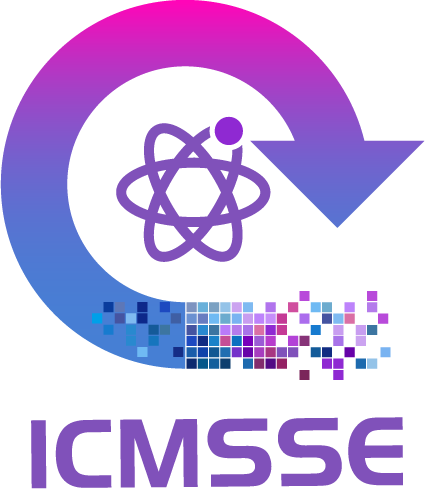
Prof. Zhenyu ChenSoftware Institute, Nanjing University, China Brief: Prof. Zhenyu Chen is the Founder of the IEEE International Software Testing Competition and the Founder of Mooctest. He is the Distinguished Member and Distinguished Speaker of CCF. He served as a member of the Program Committee for ISSTA, ICSE, FSE, ASE,, and as an Associate Editor for IEEE Transactions on Reliability. He has published over a hundred papers in international well-known conferences and journals, and won some awards of ACM SIGSOFT Distinguished Paper and IEEE QRS Best Paper. He has more than 40 patents, some of which have been transformed in well-known enterprises such as Huawei, Baidu, etc. The research results have won the first prize of Jiangsu Science and Technology Award, the first prize of Hubei Science and Technology Progress Award, CCF NASAC Youth Software Innovation Award, the first prize of National Teaching Achievement Award.Speech Title: Intelligent Software Engineering Opportunities and Challenges Abstract: With the rise and popularization of large language models (LLMs), artificial intelligence (AI) brings new opportunities for software engineering. This report starts from the dependencies of software requirements S, program P, and testing T, rethinks the essential issues of software development and testing, and analyzes the current status and challenges of code generation, test generation, and document generation in the era of LLMs. We focus on the capability boundaries of AI models (represented by current large-scale models) from the perspective of software engineering, and share the academic research papers and industrial applications of the iSE Laboratory at Nanjing University in the fields of code generation, test generation, and document generation in recent years. |
|
| Prof. Syed Abdul Rehman KhanSchool of Management Engineering, Xuzhou University of Technology, China
Speech Title: Enbracement of Industry 4.0 and Sustainable Supply Chain Management Abstract: Industry 4.0, also known as the Fourth Industrial Revolution, is bringing forth fast development. This revolution is reforming how companies work and relics optimistic regarding the opportunities Industry 4.0 may bring for sustainability. In recent years, several businesses have used sustainable supply chain practices (SSCPs) to make their supply networks less harmful to society and the environment. The goal is to minimize adverse environmental effects, such as those caused by excessive energy, water, and waste use. Sustainable business practices are becoming more and more crucial for growing firms as well as for resolving global issues. This research analyzes how Industry 4.0 affects the textile industry's environmental, social, and economic performance through SSCPs. Smart-PLS is utilized to examine the hypotheses using structural equation modeling, and a total of 639 valid survey responses were collected and processed for this study. The results show that SSCPs benefit Industry 4.0's environmental, social, and economic performance and have a positive impact. Industry 4.0 research incorporating SSCPs and the triple bottom line is a relatively recent concept.; further research may focus on other elements that could make SSCPs easier to execute. In this study, we employed the Practice-based view (PBV) theory for the sustainable supply chain (SSC) model; however, future researchers may use the Resource-based perspective or ecological modernization theory. The implications of Industry 4.0 on the textile industry's environmental, social, and economic performance through SSCPs have been the subject of a few research. |
A. Prof. Wenchao WeiSchool of economics and management, Beijing Jiaotong University, China Brief: Wenchao Wei graduated from the University of Leuven in Belgium (USnews world ranking 68) with a doctorate in applied economics. Currently serves as a director of the Railway Material Management Committee. He presides over the National Natural Science Foundation of China Youth Program, the Beijing Philosophy and Social Science Fund Youth Program, and the Humanities and Social Sciences Program of Beijing Jiaotong University.Research Area: Big data and smart supply chain management, intelligent transportation and logisticsSpeech Title: TBC Abstract: TBC |
|
 | A. Prof. Hongbo LiSchool of Management, Shanghai University, China Brief:Hongbo Li , Ph.D. (post), Associate Researcher and Master Supervisor, Department of Information Management, School of Management, Shanghai University. Received a Ph.D. in Management from Beihang University in 2014 (jointly trained by the University of Leuven, Belgium). The main research fields are artificial intelligence, project management and scheduling, data science, business intelligence, data operation, information management and e-commerce. He has published more than 40 academic papers, of which more than 10 have been published in well-known SCI/SSCI journals at home and abroad (5 papers have been published in ABS 3-star journals. 3 papers have been published in ABDC A * level journals. 3 papers published in ABDC A-level journals), such as: Journal of Scheduling (ABS 3 stars. JCR Q1), International Journal of Production Research (ABS 3 stars. JCR Q1), Decision Support Systems (ABS 3 stars. ABDC A *. JCR Q1), Expert Systems with Applications (ABS 3 stars. JCR Q1), Journal of Construction Engineering and Management (ABDC A *), etc. He has presided over many scientific research projects such as the National Natural Science Foundation of China and the Ministry of Education Humanities and Social Sciences. He has reported research results at well-known academic conferences such as INFORMS Annual Meeting for many times.Research Area: Artificial intelligence, project management and scheduling, data mining Speech Title:TBC Abstract: TBC |



